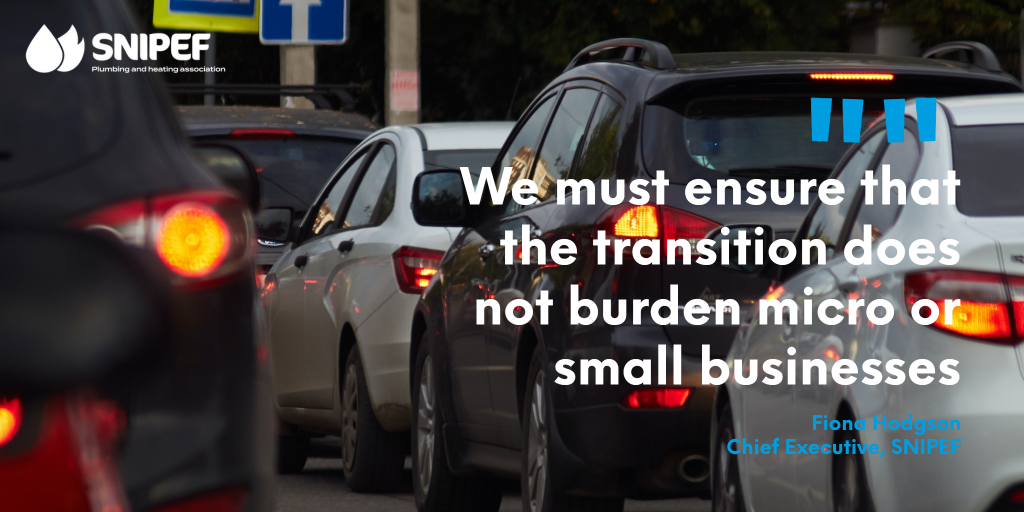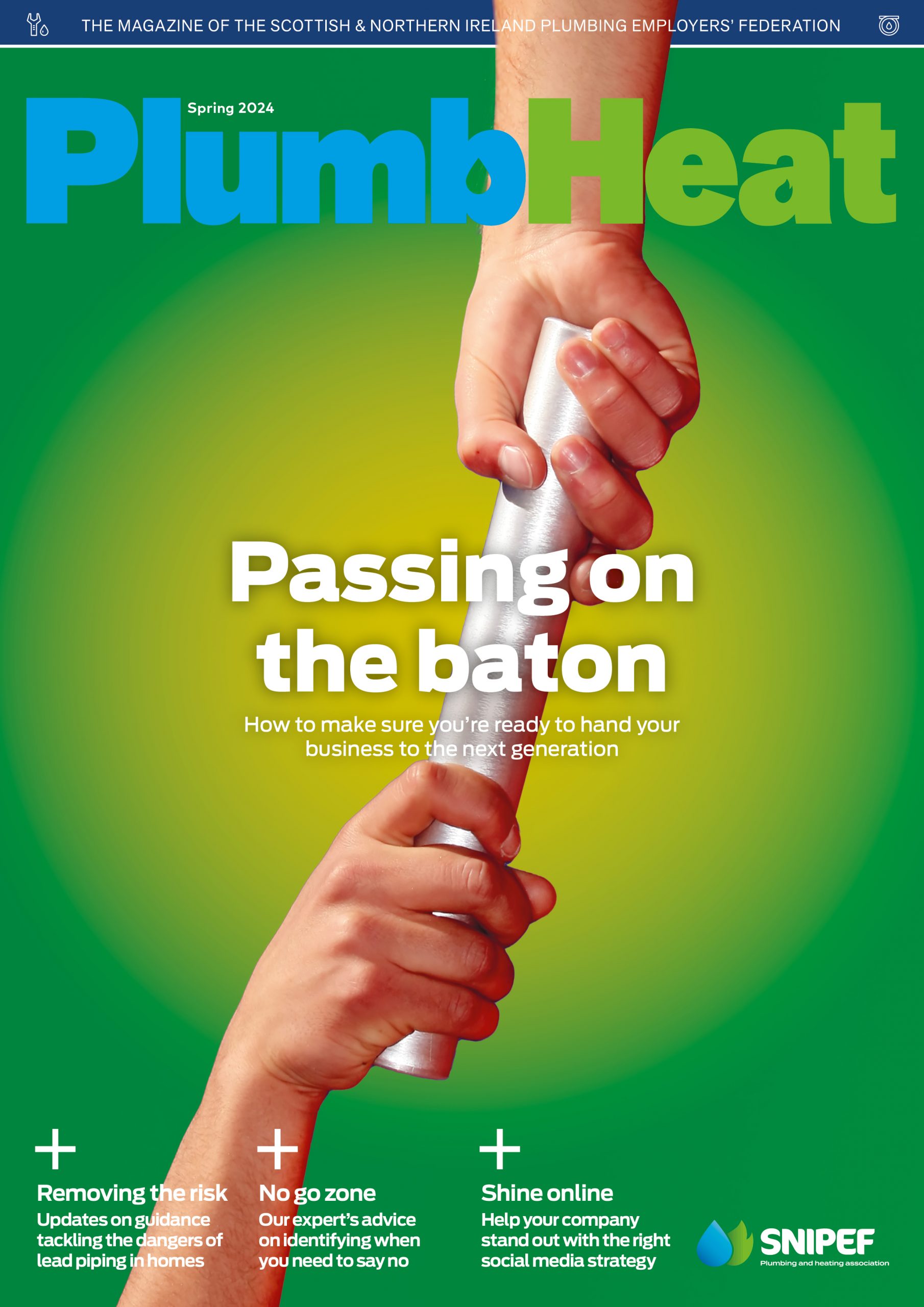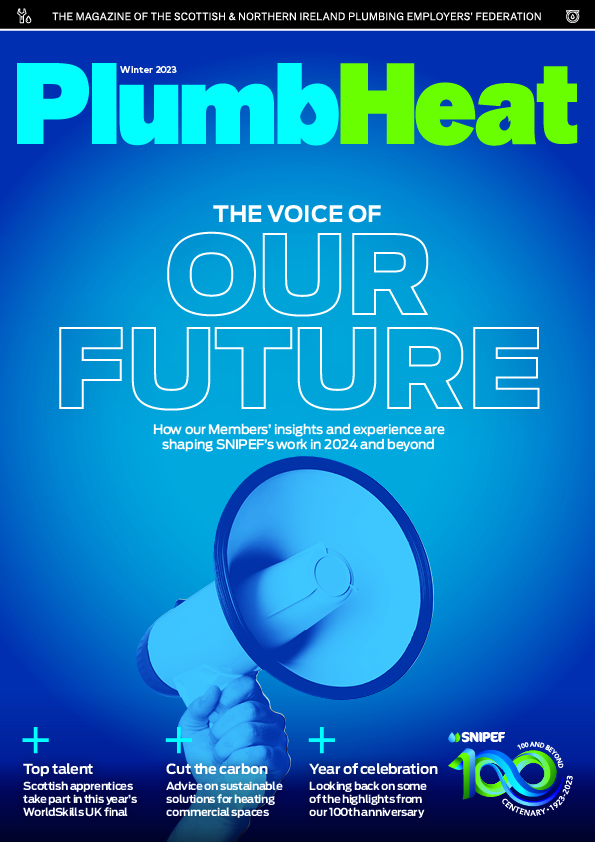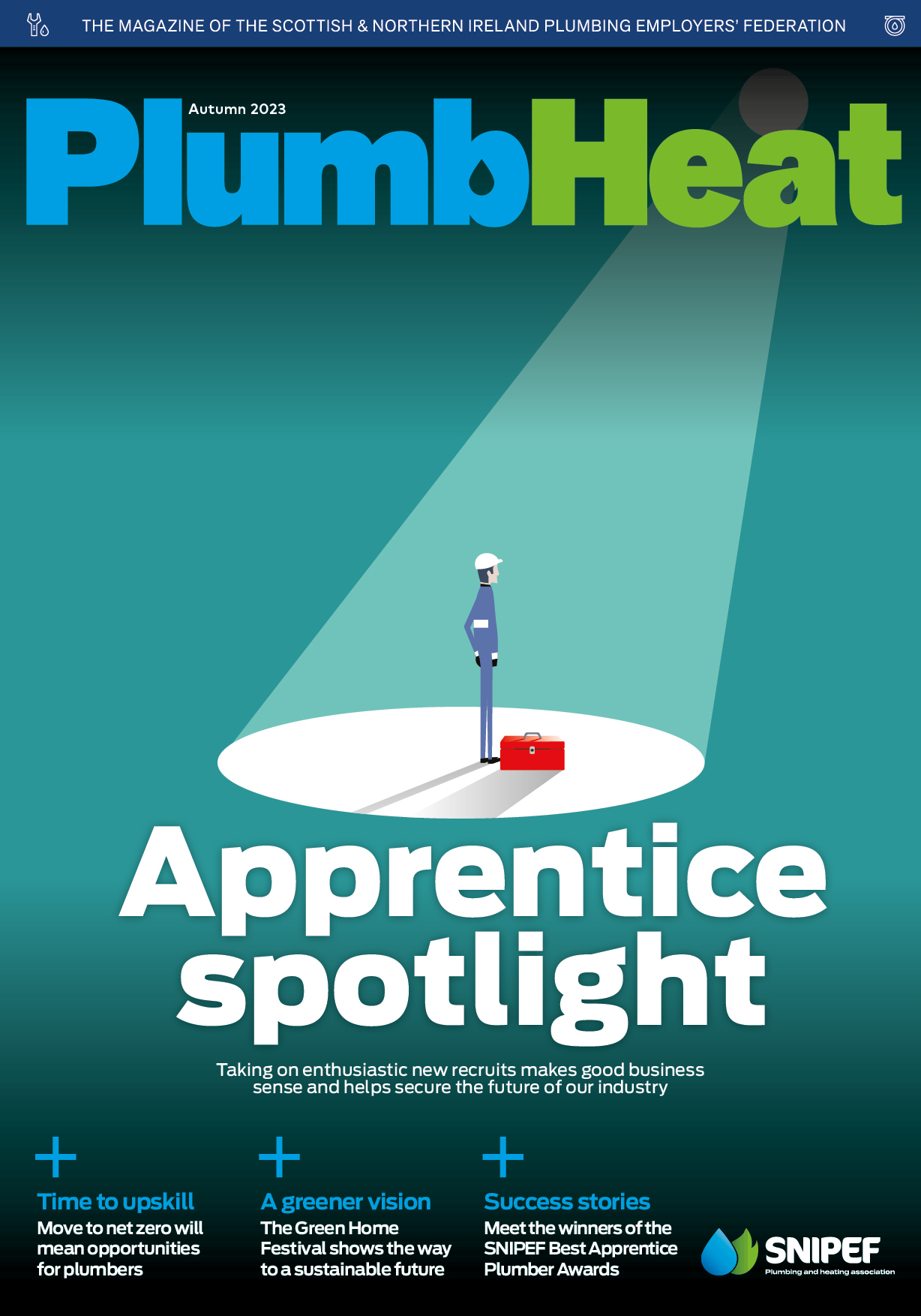SNIPEF calls on Government to enhance business support ahead of Low Emission Zone expansion
September 29, 2023
SNIPEF is urging the Government to bolster its support for micro and small businesses in anticipation of the Low Emission Zone (LEZ) expansions set for 2024. Glasgow has already pioneered the introduction of LEZ this year, with ambitious plans to extend these zones to Edinburgh, Dundee, and Aberdeen by 1 June 2024.
Edinburgh, Scotland - The Scottish government must increase its support for micro and small businesses ahead of the further rollout of Low Emission Zones (LEZs) to Edinburgh, Dundee, and Aberdeen, says the Scottish and Northern Ireland Plumbing Employers' Federation (SNIPEF).
In June 2023, Glasgow began enforcing the LEZ penalties for non-compliant vehicles, with Edinburgh, Dundee and Aberdeen to follow from 1 June 2024. However, the £2,000 scrappage incentives offered are only a fraction of the £7,000-£11,000 offered to businesses in London.

Fiona Hodgson, SNIPEF Chief Executive, remarked, "Improving air quality in urban areas is undeniably vital for public health. LEZs have shown the potential to significantly reduce pollutants, benefiting everyone, especially those with respiratory conditions.
"However, while we fully support the move towards cleaner cities, we must ensure that the transition does not disproportionately burden micro and small businesses – the backbone of our local economies and which account for over 90% of all construction trades."
Research, including points raised in recent years by the Federation of Small Businesses (FSB), has highlighted the financial challenges that micro and small businesses face with such environmental mandates. The costs of upgrading vehicle fleets to meet stringent emission standards can add extra strain to already tight resources or limit where some businesses can operate.
As seen in London's recent ULEZ expansion, local consultations and impact assessments have underlined the increased complexities and costs that micro and small businesses face in these zones. Various grants and support measures have been rolled out to address these challenges, but there's a consensus that more targeted support is needed.
"While initiatives like the Low Emission Zone Support Fund are a step in the right direction, a comprehensive and long-term strategy is needed", Ms. Hodgson added. "We aim to ensure that as cities become greener, micro and small businesses are provided the necessary tools and support to thrive amid change."
LEZs are specific areas within cities that limit access to vehicles emitting higher pollutants to uplift air quality. All petrol vehicles within these zones must comply with Euro 4 standards, and all diesel vehicles need to meet Euro 6 criteria. These standards have been set to ensure reduced emissions and better air quality in urban areas.
Transport Scotland via the Energy Saving Trust offers grants of £2,000 to micro-businesses employing up to nine employees and operating within 20km of Scotland's LEZs to facilitate the safe disposal of non-compliant vehicles.
LEZs and similar measures have gained traction due to their clear public health benefits. Numerous studies link improved air quality to reduced hospital admissions, fewer premature deaths, and better respiratory health.
To navigate these transitions, SNIPEF is urging all its members to check their vehicle's compliance using the Energy Saving Trust’s online emission checker.


